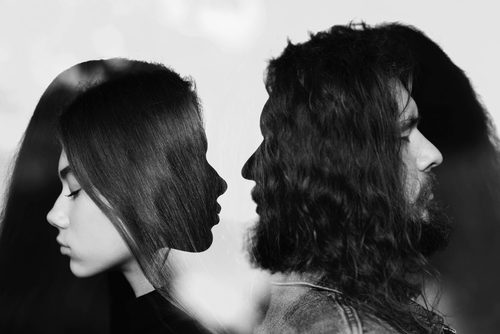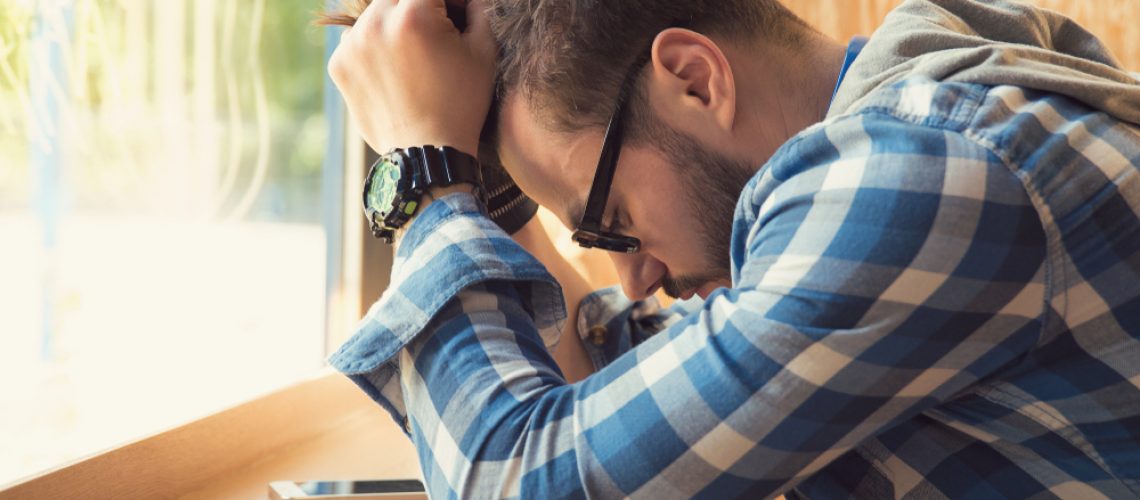We’ve all probably heard the expression “love addiction” thrown around and might’ve used it ourselves without digging into the deeper meaning of this term. Some of us might not be aware that another word used to describe this type of behavior is codependency. The connection between being addicted and being dependent on a person or a feeling might not be obvious.
However, people who struggle with codependency usually exhibit unhealthy attachment to another person, which is similar to being addicted to a substance. After all, this is where the term came from. Although not a mental health disorder per se, these two types of addiction do share some similar traits. For example, in a relationship, a codependent person might feel that they need the other person to feel complete. As a result, they might go to great lengths to maintain the relationship, even when it clearly harms their sense of self-worth and well-being.
Codependency is characterized by a compulsive need to engage in a particular pattern of behavior that consistently prioritizes the needs and desires of others over one’s own. It’s quite clear that this type of behavior is unhealthy and can be highly detrimental to emotional and mental health. If this sounds familiar, whether you recognize yourself, your partner, or a close friend, remember there are ways to cope with “love addiction.” Just like rehab helps people suffering from severe forms of substance abuse, there are various types of workshops and retreats that offer intensive codependent relationship recovery.
Can A Codependent Person Love?

Codependent people often mistake their dependence on their partner for love, but love isn’t supposed to come at the expense of one’s own needs and sense of well-being. While a codependent person might have sincere feelings of attachment and care for their partner, their love can cause harm if it reinforces the cycle of dependence and leads to neglecting their own emotional and even physical needs.
One of the main reasons why love gets easily confused with codependency is that codependency starts out with good intentions. For example, someone might feel they’re showing love and support by caring for their partner’s every need. However, this can develop into an unhealthy and unsustainable dynamic over time. The codependent partner can become incapable of maintaining their own well-being and sense of self. They can become overly reliant on their partner for emotional support, validation, and the feeling of self-worth.
This is why the distinction between love and codependency is so important. Confusing the two frequently leads to unhealthy and unsustainable relationships. True love is about caring for another person while also caring for oneself. In a healthy relationship, both partners support each other’s growth, independence, and self-esteem. Partners can communicate openly and respect each other’s needs and boundaries. Conversely, codependency frequently involves controlling or manipulative behavior, fear of abandonment, and a lack of healthy boundaries.
A codependent person might struggle to recognize their own needs and feelings and often feels overwhelmed by their partner’s emotions and needs. As a result, they feel responsible for their partner’s happiness and neglect their own in the process. If this type of relationship dynamics persists, it can lead to feelings of resentment, frustration, and emotional exhaustion over time.
Is Codependency Healthy?

Codependency is not considered healthy as it generally causes emotional distress, anxiety, and depression for both partners. The codependent partner frequently struggles with low self-esteem, difficulty making decisions, and feeling responsible for their partner’s emotions and actions. The non-codependent partner might feel overwhelmed by their partner’s neediness and feel unable to meet their expectations.
Some common examples of codependent relationships include unhealthy behavior patterns like:
- Putting a partner’s needs before one’s own to the point of neglecting physical and emotional health.
- Constantly seeking validation and affirmation from the significant other and becoming upset or anxious when they do not receive it.
- People-pleasing tendencies are also common among individuals who prioritize the needs and wants of others, so codependent behavior develops as they struggle to maintain the relationship at all costs.
- A partner who feels responsible for the well-being of the other might take on the role of caregiver, often at the expense of their own needs and desires.
- The codependent partner might lose their sense of identity and become overly reliant on their partner for their own sense of self-worth.
- Tolerating unhealthy behavior from the significant other, like addiction or emotional abuse, to maintain the relationship.
Although codependency can take many forms and occur in any type of relationship, including friendships, and family relationships, it’s usually most evident in romantic relationships. This is where it can cause significant harm to one’s emotional well-being and mental health. A codependent partner frequently feels some of the following signs of codependency:
- Inability to set healthy boundaries.
- Need for constant validation and approval from their partner.
- Difficulty making decisions without the input of others, particularly their romantic partner.
- Tendency to put others’ needs before their own, even when it harms them directly.
- Fear of abandonment or rejection.
- Intense need for control over others, or their environment.
- Tendency to stay in unhealthy relationships despite the negative impact it might have on their life.
These are only some examples of the many ways that codependency can manifest in romantic relationships. Learning to recognize these patterns of behavior is crucial for recovery. When you start to understand what you’re dealing with, you can seek help and break free from the vicious cycle with guidance received in codependency recovery retreats or other appropriate types of expert assistance.
Furthermore, you can prevent even more serious complications that prolonged codependency can cause, like severe mental health issues, anxiety, depression, and high-risk and self-destructive behaviors like substance abuse, eating disorders, or others. These behaviors can become maladaptive coping mechanisms people succumb to in an attempt to escape emotional pain and lack of self-worth.
PIVOT Can Help You Overcome The Need For Codependent Relationships Through Specialized Retreat Programs
The first step toward healing is recognizing that while codependency might feel like love, it’s not healthy or sustainable in the long run. If you repeatedly get stuck in the same patterns, turning to experienced relationship advocates can help you change the way you perceive your emotional reality. They can teach you how to change your thinking and break the cycle. As a result, you can learn to feel self-sufficient and safe in your relationships.
By recognizing the signs of a codependent relationship and identifying the underlying causes of unhealthy thoughts, you can begin to understand them and learn how to practice healthier behavior patterns. The secluded environment of Glass House retreats, guided by PIVOT’s experienced coaches, can help you work toward healing. You can start building healthy, fulfilling relationships based on mutual respect, trust, and support, that allow true love and personal growth to flourish.

